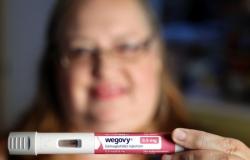Each year, among the 61,000 cases of breast cancer diagnosed in women, 8,000 are linked to alcohol consumption. Did you know how much alcohol can increase the risk of this type of cancer?
Tl;dr
- 8,000 cases of alcohol-related breast cancer each year.
- Alcohol consumption promotes the development of breast cancer.
- Alcohol withdrawal improves response to cancer treatments.
Alcohol, a silent enemy
Did you know that in France, each year, 8,000 cases of breast cancer out of the 61,000 detected are attributable to alcohol consumption? Alcohol, often underestimated or misunderstood, is a worrying risk factor for breast cancer.
The link between alcohol and breast cancer
Alcohol is the second leading preventable cause of cancer death, after tobacco. This risk is often minimized in France, only 58.4% of French people admit that moderate alcohol consumption increases the risk of cancer. However, this risk begins to increase as soon as a person consumes alcohol, even in quantities less than one drink per day.
Studies have shown that increased alcohol consumption increases the risk of breast cancer by 5% in premenopausal women and 9% in postmenopausal women for each unit of alcohol consumed per day.
Indeed, alcohol has the ability to raise the levels of estrogen in the blood, hormones playing a central role in the development of certain types of breast cancer.
Alcohol withdrawal, an effective solution
Conversely, a reduction in alcohol consumption, or even abstinence, can significantly reduce the risk. In addition, weaning also improves the response to anticancer treatments, reduces adverse effects, and reduces the risk of recurrence.
Regular consultations make it possible to monitor progress, adjust treatments and prevent relapses. Psychosocial support, including therapies and discussion groups, strengthens motivation and improves the patient’s environment, thus increasing the chances of success.
Necessary awareness
These statistics highlight the need for increased awareness and preventative measures. Promoting alcohol withdrawal could play a crucial role not only in reducing the incidence of this cancer, but also in improving survival.
In conclusion, it is essential to recall the guidelines for alcohol consumption recommended in France: do not consume more than ten standard drinks per week; do not consume more than two glasses per day; have days without drinking in a week: “for your health, alcohol is a maximum of two drinks per day and not every day”.






